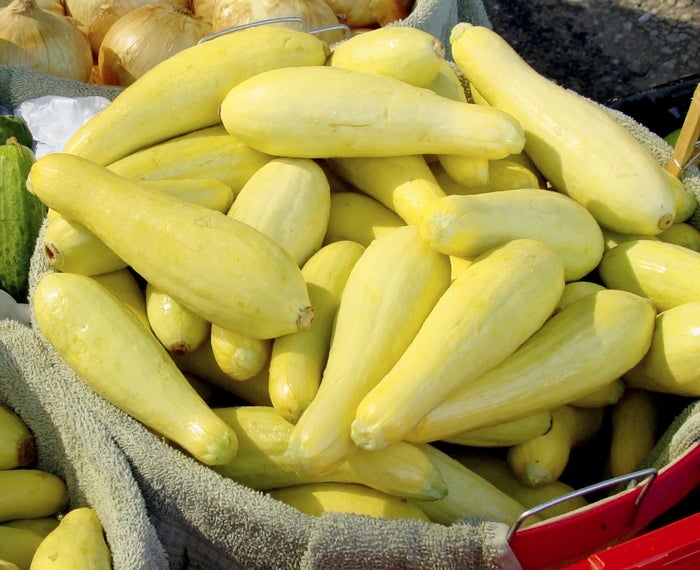Darrell Blackwelder: Avoid these mistakes when gardening
Published 12:00 am Friday, February 6, 2015

- Cooperative Extension Don't overplant. Many people end up with too much squash or too many beans.
Stimulated by the local foods movement and the popularity of fresh vegetables, would-be gardeners are yearning to grow their own vegetables.
Colorful seed catalogs and gardening shows make this venture even more enticing. Unfortunately, many novice, as well as seasoned, vegetable gardeners make crucial mistakes with their gardening endeavors. Beginning gardeners often give up because of a few key mistakes that can easily be avoided. Below are the most common avoidable mistakes made by beginning vegetable gardeners.
• No soil testing for fertility. Gardeners fail to have soil tested so they end up guessing about fertilization. Guessing wastes much time and effort as well as endangering the environment from lack of soil tests. Soil test kits are available from Cooperative Extension on Old Concord Road in Salisbury for home gardeners.
• Too much shade for plants to produce. Sounds like a given, but many people don’t understand the concept of full sunlight. Vegetables need at least 8 hours or more of direct sunlight each day for optimum growth. Those who plant tomatoes in flower beds near their homes never seem to get enough light. The result is a tall, stringy plant with little or no fruit.
• Little or no irrigation or poor irrigation techniques. Commercial vegetable producers wouldn’t put a seed in the ground without a dependable source of water. Vegetables are mostly water and need copious amounts during the peak of the growing season. Others may irrigate incorrectly by supplying light applications too often. Drip irrigation is an effective method of irrigating plants without wasting water. If you have a weak well or are uncertain of its capacity, you may want to visit the local farmer’s market and save your well.
• Too many amendments. Some try too hard to make their soil fertile. Adding compost and leaf mold will improve the soil, but don’t add too much. Some add so much that vegetables have no trace elements. Adding 2-3 inches of compost to the soil each season is acceptable.
• Planting too early. Unseasonably warm weather sparks gardeners to take chances and plant. Many can’t wait until the danger of frost or cold weather is past before planting. Rowan County has had its share of late frosts in late April and May.
• Plant too many vegetables. Many gardeners beg their friends and neighbors to take excess squash and tomatoes. Planting too much is a very common error for most gardeners. Two to four summer squash plants will easily feed a family of four. Research the yield of vegetables before planting.
• Poor pest control. Insects and weeds can take over a garden in a matter of days. Most weeds are indigenous and will outgrow vegetables. Keep weeds in check with routine weeding or hoeing. Proper identification of insects makes control easier. Many insects in the garden are beneficial. Some vegetables and pests can coexist. Learn to live with some pests.
• Harvesting produce at the wrong stage. Many grow vegetables but harvest either too early or too late. Again, research the vegetable to determine the correct harvesting times and techniques.
• Failure to keep records. It’s difficult to remember from year to year how much you planted, varieties, insect pests, etc. Keep a log or journal for your crop. Next season’s crop will be much easier to grow.
Information about vegetable and other gardening can be found at the N.C. State University web site at http://rowan.ces.ncsu.edu/Publications/lawngarden.php or on the local extension website at www.rowanextension.com




